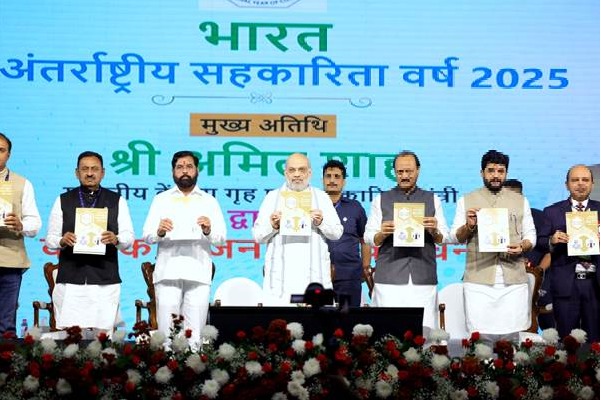New Delhi: The government has announced plans for a cooperative taxi service aimed at ensuring democratic management through the active involvement of all members. The initiative is designed to ensure that the profits generated by such cooperative taxi societies are fairly distributed among the taxi drivers who are members of these cooperatives.
India boasts over 800,000 cooperative societies that serve approximately 300 million members across 30 different sectors.
During a discussion on the Tribhuvan Sahkari University Bill, 2025 in the Lok Sabha, Union Home Minister and Minister of Cooperation Amit Shah stated that a cooperative taxi service would be launched soon, allowing the registration of two-wheelers, taxis, auto-rickshaws, and four-wheel vehicles, with profits going directly to the drivers.
Following the principle of “Sahakar se Samriddhi” (prosperity through cooperation), this taxi service will be established by willing taxi drivers, and its management will be in the hands of the cooperative’s members.
The ministry emphasized that this initiative aims to enhance overall prosperity, improving the income, working conditions, and living standards of taxi drivers who are part of the cooperative, while also delivering better services to consumers.
The concept of ‘Sahkar’ or cooperation involves individuals voluntarily coming together to create a cooperative society based on mutual benefit and shared economic interests. Cooperative economic models have proven to be more beneficial for members, promoting equitable growth, as seen in successful cases like Amul.
These cooperatives are pivotal in fostering self-reliance, financial inclusion, and rural development, particularly in sectors such as agriculture, dairy, fisheries, banking, housing, consumer services, labor, and sugar.
Cooperatives actively compete in the market alongside private enterprises and are registered under the cooperative laws of their respective states or Union Territories. Societies operating across multiple states or UTs are governed by the Multi-State Cooperative Societies Act.
The government has been involved in promoting and assisting startups and other enterprises to foster equitable and inclusive national growth.

